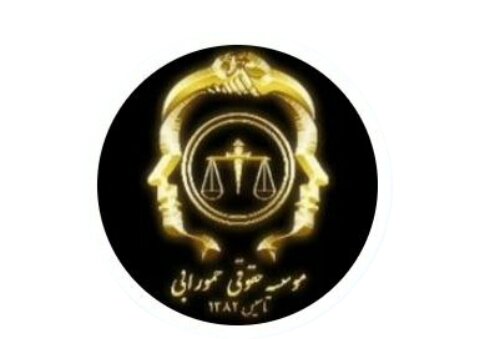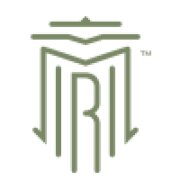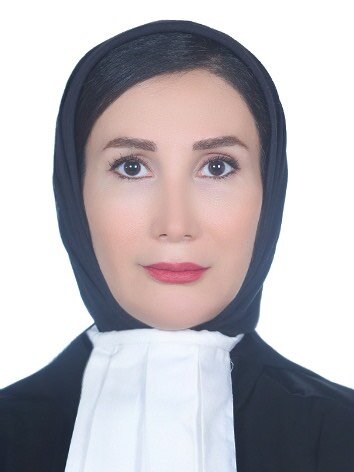Best Foreclosure Lawyers in Tehran
Share your needs with us, get contacted by law firms.
Free. Takes 2 min.
Free Guide to Hiring a Real Estate Lawyer
List of the best lawyers in Tehran, Iran
About Foreclosure Law in Tehran, Iran
Foreclosure in Tehran, Iran, is governed by a set of legal procedures that allow creditors to seize properties used as collateral for loans that are in default. The process is primarily regulated by the Iranian Civil Code and relevant banking laws. Foreclosure is typically initiated by banks or financial institutions when a borrower fails to meet mortgage obligations, leading to the public sale or auction of the property to recover the outstanding debt.
Why You May Need a Lawyer
Legal assistance is often necessary in foreclosure cases for various reasons. Individuals may require a lawyer if they face complex legal procedures, need to negotiate with creditors, or wish to contest the foreclosure. Lawyers can provide valuable advice on potential remedies, assist in restructuring debts, or help to protect a client's rights during the foreclosure proceedings. Additionally, a legal professional can guide homeowners through alternative solutions such as short sales or loan modifications.
Local Laws Overview
In Tehran, foreclosure proceedings are deeply rooted in local legislation and banking regulations. Under Iranian law, the process is initiated when a debtor fails to fulfill the terms of the mortgage agreement. The creditor is required to notify the debtor of the default and provide an opportunity to rectify the situation. If unresolved, the creditor can file a claim in court to obtain permission to foreclose. The court has the authority to issue orders for the auction of the property, ensuring due process is followed. Additionally, there are protections in place for debtors, including potential extensions or temporary relief measures in certain circumstances.
Frequently Asked Questions
What triggers the foreclosure process in Tehran?
The foreclosure process is usually triggered when a borrower defaults on their loan, meaning they have missed several required payments as outlined in their agreement with the lender.
How long does the foreclosure process take?
The length of the foreclosure process can vary depending on the complexity of the case and judicial backlog. On average, it may take several months to a year for completion.
Can I stop the foreclosure process?
Yes, there are several ways to potentially halt foreclosure, such as negotiating a loan modification, refinancing, or filing for bankruptcy protection. Consulting a lawyer for personalized strategies is advisable.
What are my rights during foreclosure?
Borrowers have the right to receive adequate notice of default, the right to redeem the property before the sale, and the right to challenge any procedural errors in court.
Can I sell my property during foreclosure?
Homeowners may have the option to sell their property to repay the debt before foreclosure is completed, a process known as a short sale. However, it requires lender approval.
What happens to any remaining debt after foreclosure?
If the foreclosure sale doesn’t cover the outstanding loan balance, the creditor might pursue a deficiency judgment for the difference, although this depends on specific terms and court rulings.
Is there any way to negotiate with the bank?
Yes, most banks are open to negotiations to restructure the debt or offer forbearance plans to prevent foreclosure. Legal counsel can assist in these discussions.
Will foreclosure affect my credit rating?
Foreclosure will significantly impact your credit score, making it more challenging to obtain loans in the future. The negative mark can remain on your credit report for several years.
Are foreclosure proceedings public in Iran?
Yes, foreclosure proceedings, including court filings and auction announcements, are typically public records. The auction process is conducted publicly.
What should I do if I receive a foreclosure notice?
If you receive a foreclosure notice, it is crucial to act promptly by seeking legal advice, contacting your lender, and exploring available options to manage the situation effectively.
Additional Resources
For individuals needing guidance on foreclosure in Tehran, consider reaching out to the following resources:
- The Iranian Bar Association: Offers legal referrals and resources.
- The Iranian Banking Institution: For guidelines on foreclosure processes and dispute resolution frameworks.
- Local legal aid societies: Provide free or reduced-cost legal services and may have specific programs for foreclosure assistance.
Next Steps
If you are facing foreclosure and need legal assistance, the first step is to consult with a qualified lawyer who specializes in real estate or banking law in Iran. It is recommended to gather all relevant documents, such as loan agreements and communications from lenders, before seeking legal counsel. Be open about your financial situation and objectives to enable your lawyer to provide the most informed advice and representation.
Lawzana helps you find the best lawyers and law firms in Tehran through a curated and pre-screened list of qualified legal professionals. Our platform offers rankings and detailed profiles of attorneys and law firms, allowing you to compare based on practice areas, including Foreclosure, experience, and client feedback.
Each profile includes a description of the firm's areas of practice, client reviews, team members and partners, year of establishment, spoken languages, office locations, contact information, social media presence, and any published articles or resources. Most firms on our platform speak English and are experienced in both local and international legal matters.
Get a quote from top-rated law firms in Tehran, Iran — quickly, securely, and without unnecessary hassle.
Disclaimer:
The information provided on this page is for general informational purposes only and does not constitute legal advice. While we strive to ensure the accuracy and relevance of the content, legal information may change over time, and interpretations of the law can vary. You should always consult with a qualified legal professional for advice specific to your situation.
We disclaim all liability for actions taken or not taken based on the content of this page. If you believe any information is incorrect or outdated, please contact us, and we will review and update it where appropriate.

















